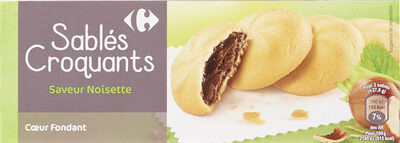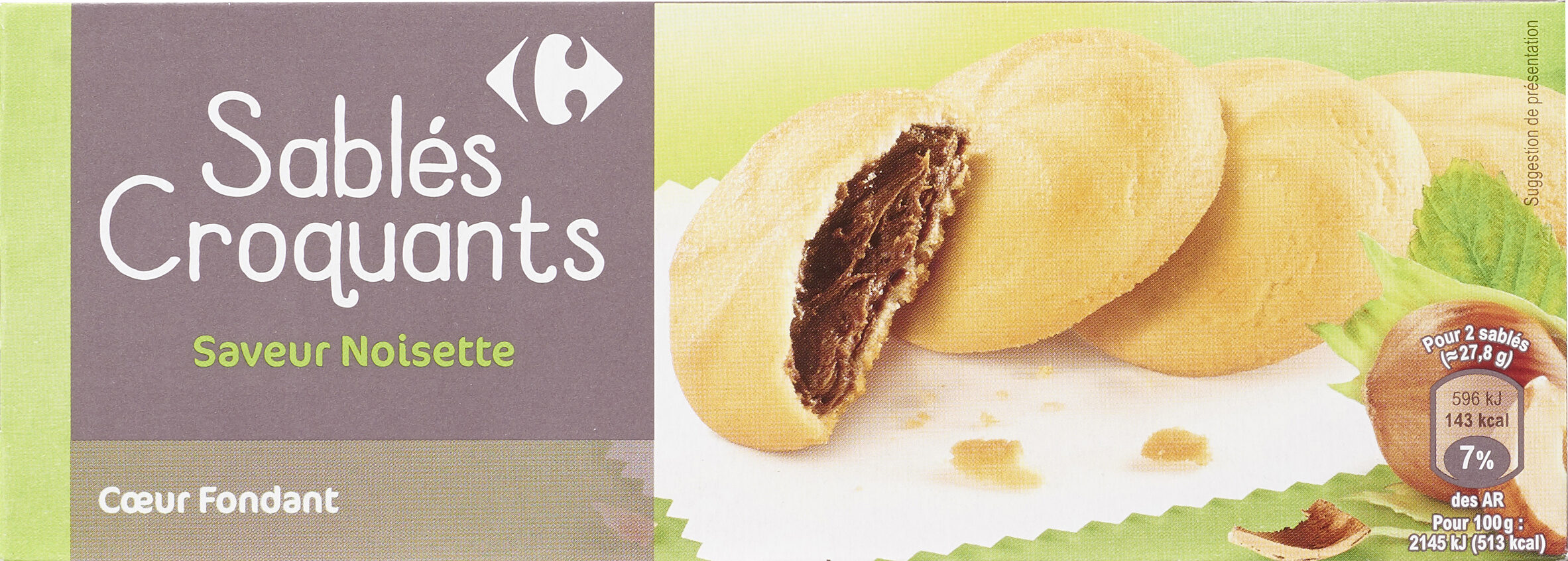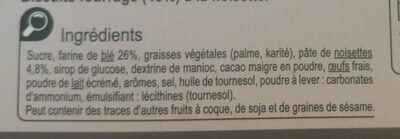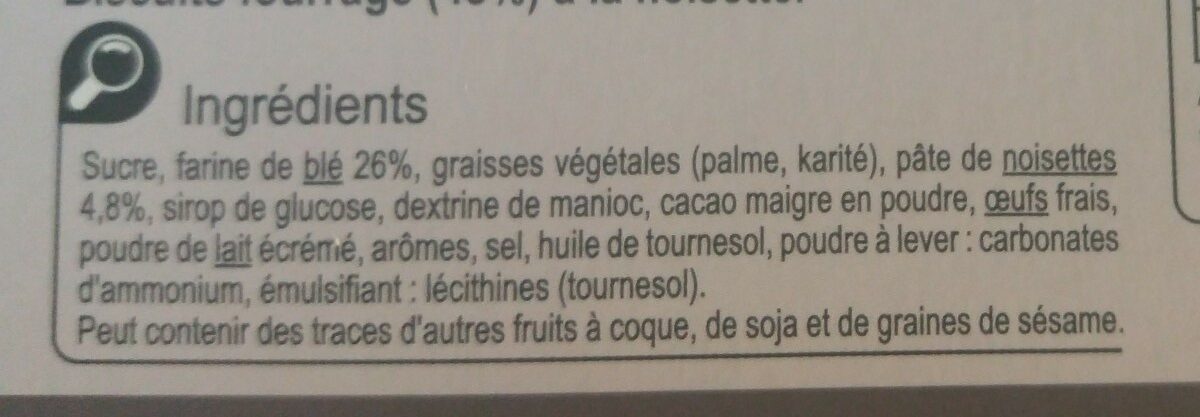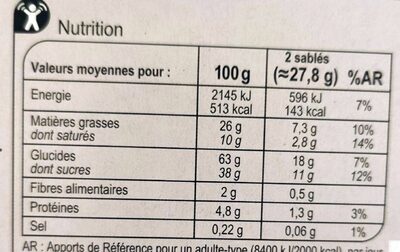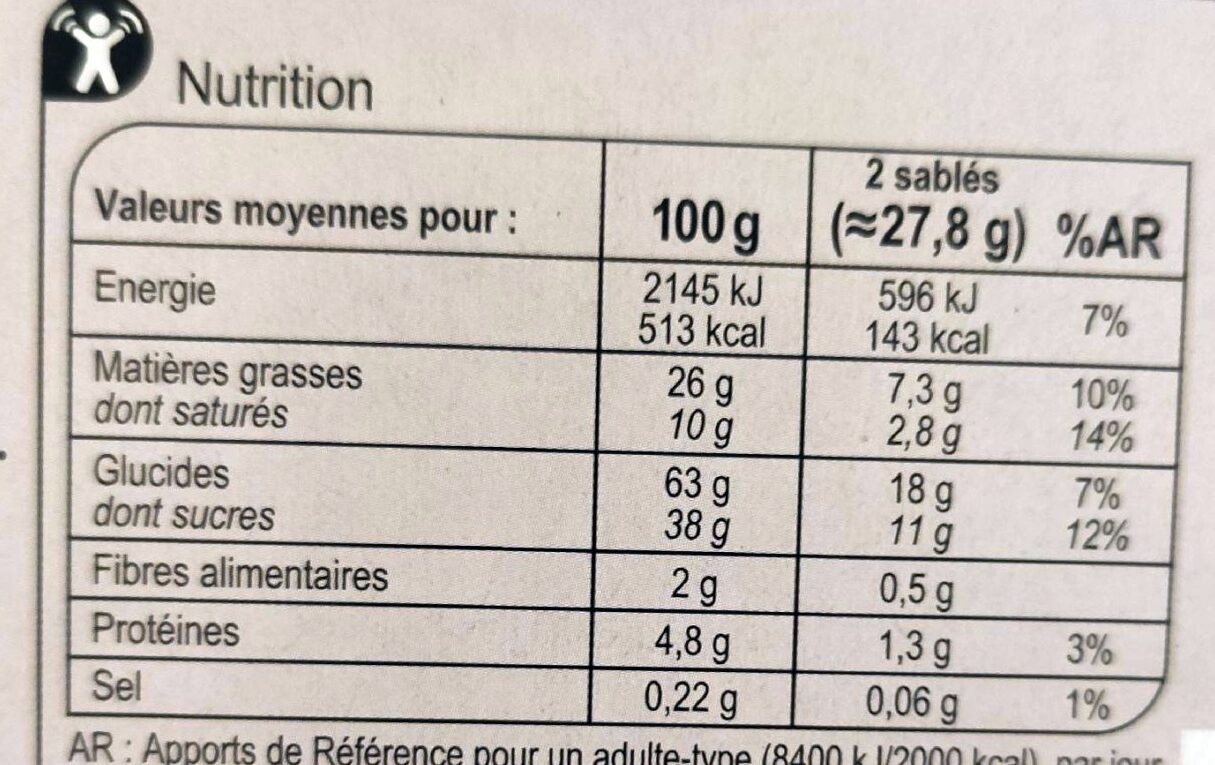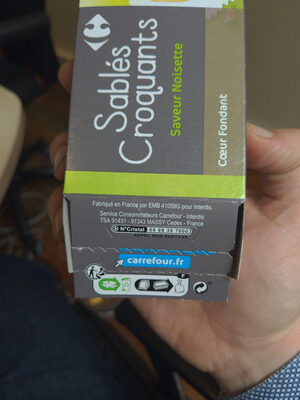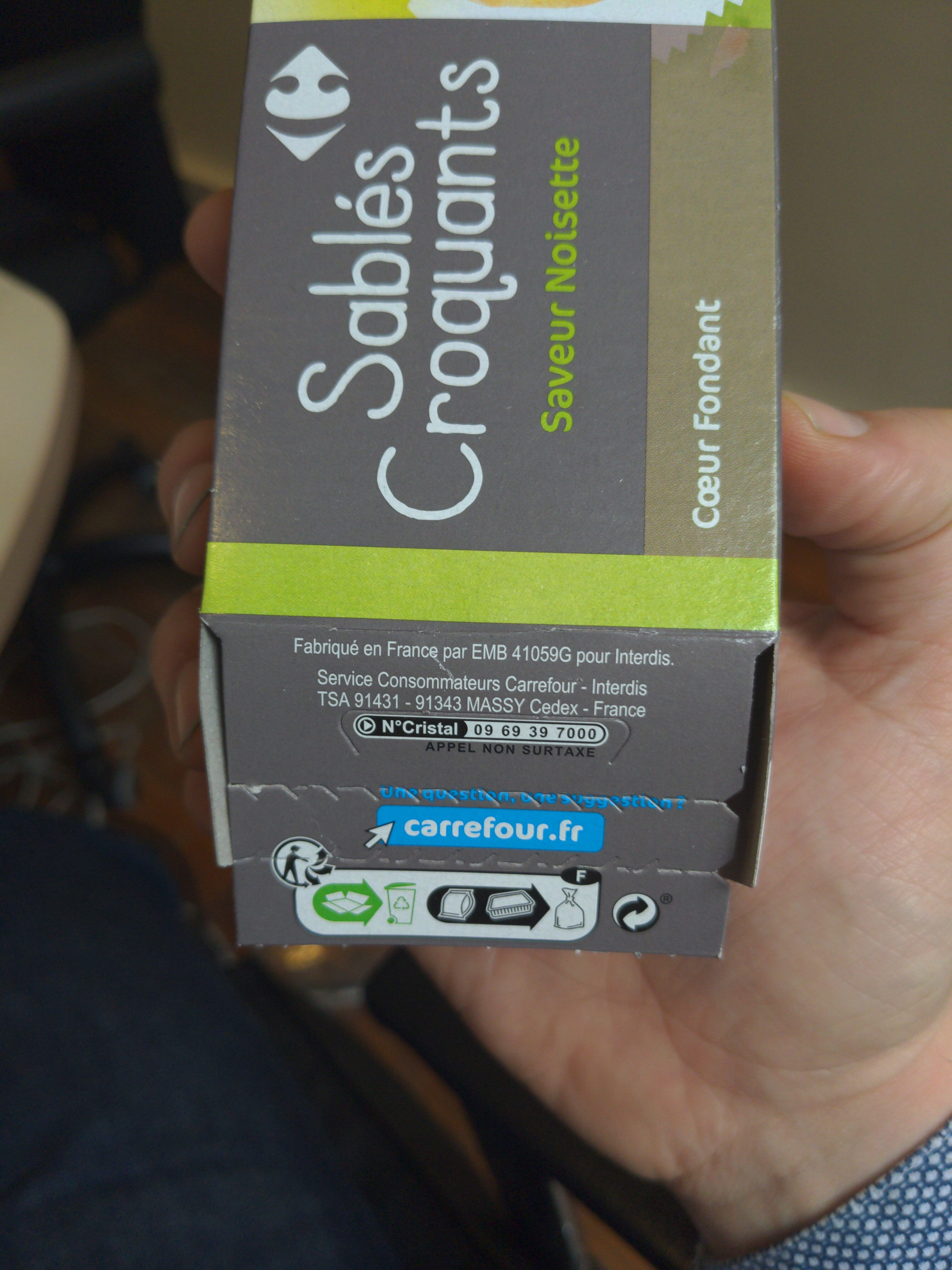Sablés croquants - Carrefour - 100 g
Aquesta pàgina del producte no està completa. Podeu ajudar a completar-la editant-la i afegint-hi més dades a partir de les fotos ja disponibles, o fent-ne més amb l'aplicació de androide o iPhone / iPad. Gràcies!
×
Algunes de les dades d’aquest producte les ha proporcionat directament el fabricant Carrefour.
Codi de barres: 3270190112266 (EAN / EAN-13)
Nom comú: Biscuits fourrage (48%) à la noisette aromatisé.
Quantitat: 100 g
Empaquetament: en:Box, Cartó, fr:Boite carton à recycler, fr:Film et barquette plastique à jeter, fr:Point vert
Marques: Carrefour
Categories: Snacks, Aperitius dolços, Galetes i pastissos, Galetes, Galetes de xocolata, Galetes de mantega
Etiquetes, certificacions, premis:
Punt verd, Fet a França, Lliure d'oli de palma
Productor: A modifier par : Fabriqué en France par EMB 41059G pour Interdis
Llocs de fabricació o processament: France
Codi de traçabilitat: EMB 44187B - Saint-Père-en-Retz (Loire-Atlantique, France), EMB 41059G - Contres (Loir-et-Cher, France), EMB 50025 - Avranches (Manche, France)
Botigues: Dia, Carrefour, carrefour.fr
Matching with your preferences
Altres dades
Altres dades: Craquez de plaisir avec ce délicieux sablé qui cache un coeur fondant à la noisette aromatisé. Découvrez également nos autres recettes de la gamme "Les Sablés" ! Coeur fondant saveur noisette
Condicions de conservació: Conservation : A conserver à l'abri de la chaleur et de l'humidité. Pour une dégustation optimale, à consommer de préférence avant le : voir sur le côté de l'étui.
Servei al client: Interdis - TSA 91431 - 91343 MASSY Cedex - France
Report a problem
Fonts de dades
Producte afegit per openfoodfacts-contributors
Última modificació de la pàgina del producte per naruyoko.
La pàgina del producte, també editada per aleene, autorotate-bot, carrefour, date-limite-app, driveoff, ecoscore-impact-estimator, hungergames, kiliweb, nioff, org-carrefour, packbot, pauliano, roboto-app, teolemon, yuka.U29NaktidFkrTUFrdHRnZHp4VFgxZjVhbmIvM1JubUZLOHdJSWc9PQ, yuka.ZW8wZ0ZaZzVxY2tJdE1VZDBRcnJ3UGxJKzRleGVIT1ZMOGdWSVE9PQ.
